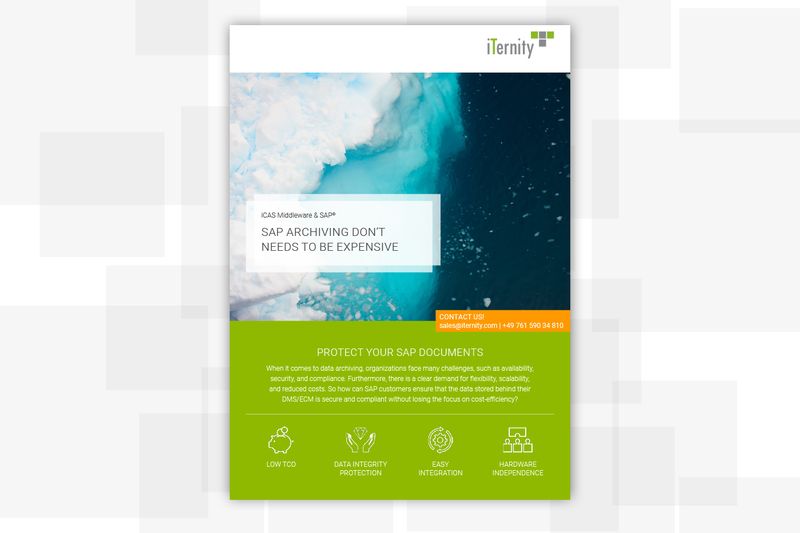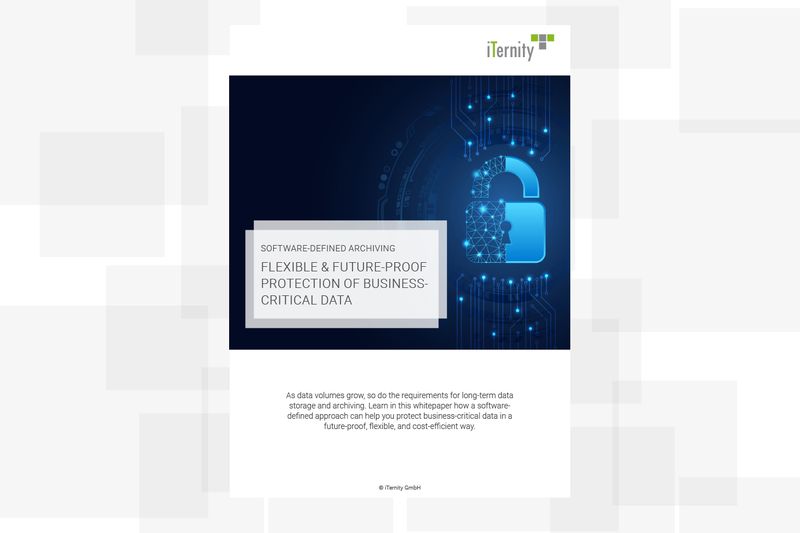- Reduction of total archive costs by up to 50%
Due to its hardware independence, Software-Defined Archiving enables a reduction of archive storage costs (TCO) by up to 50% compared to proprietary hardware silos. Software-Defined Archiving is based on x86 hardware and is characterized by its openness and scalability. The combination of industry standard servers, hardware independence and transparent licensing and support costs offers companies great potential in increasing the efficiency of their IT infrastructure.
- Data integrity checks and Self-Healing
Archived attachments and archive files are typical business data in SAP environments that must be kept available and valid over a long period of time. The long-term integrity and availability of these SAP archive-relevant documents can be ensured in a variety of ways - from containerization of data and metadata to data replication, automated integrity checks and Self-Healing.
Protecting SAP archive-relevant data and ensuring its long-term availability and integrity are important for compliance with internal and external regulations for data management (e.g. SEC17a-4, Basel III, PCI-DSS, GDPR,...). However, these requirements cannot be met by SAP-certified DMS systems or storage hardware alone. To meet the various regulations for data storage, specialized archive solution helps and closes the gap between SAP-certified DMS and storage infrastructure.
- Easy integration and hardware independence
By using software technology to manage and store SAP archive-relevant documents, archiving intelligence is provided by software, not hardware. Software-Defined Archiving offers hardware independence and easy integration into existing IT infrastructures. It is important to connect and validate the providers of DMS, ECM, and ERP applications to ensure smooth collaboration.
















